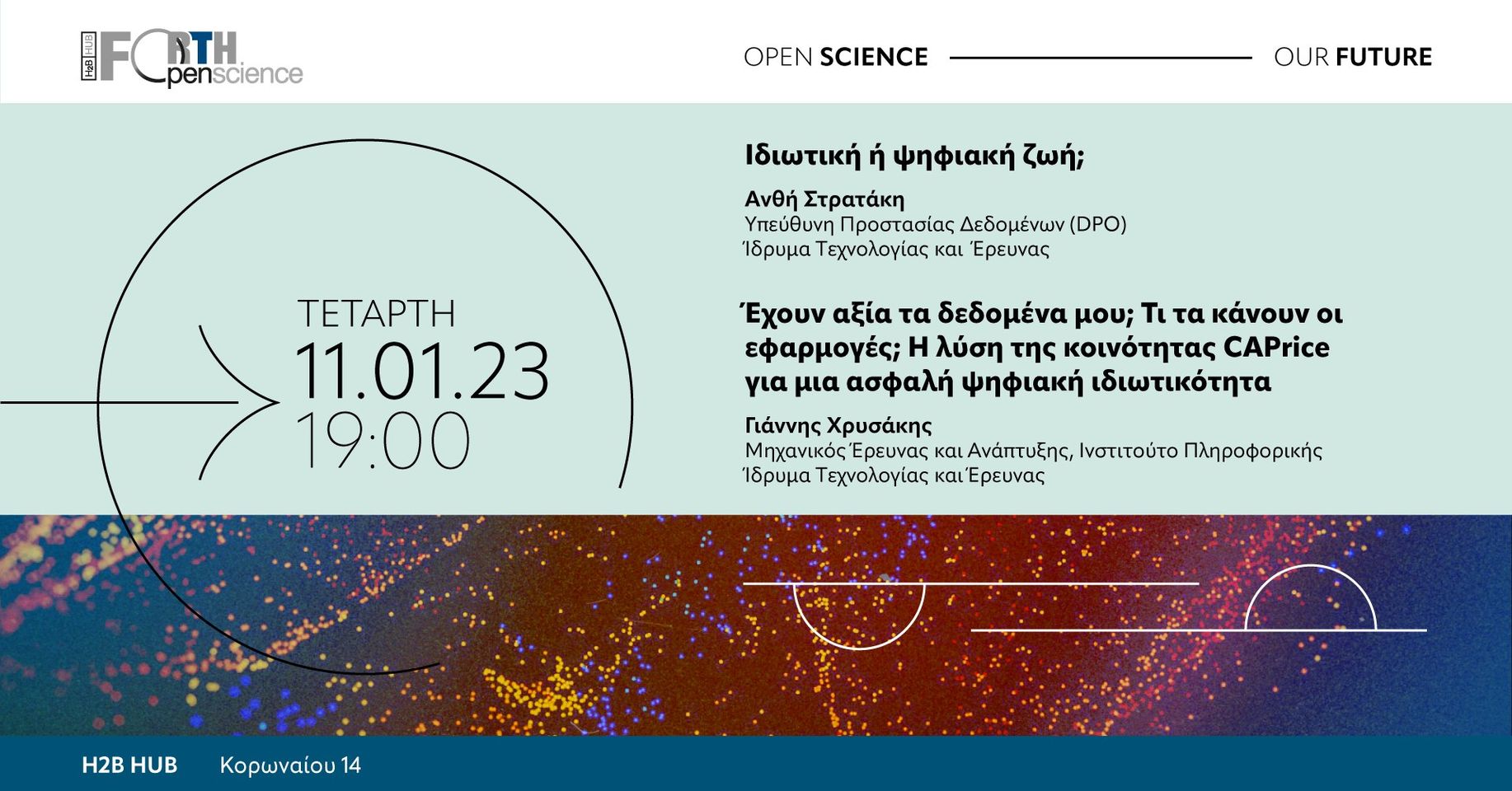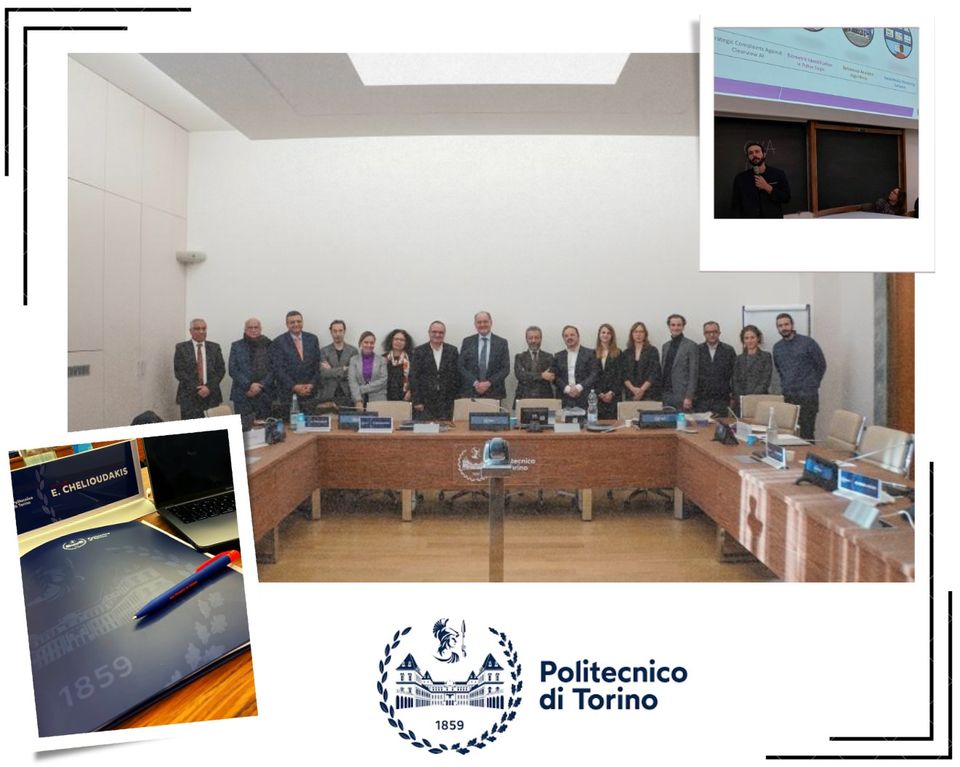Homo Digitalis participates in an online discussion on the AI Act organised by Citizen D
Online discussion on Tuesday 17 January at 15:00-16:30 by Citizen D.
The intrusion of AI into the organization of life today makes us wonder if a global regulatory framework is really needed and how it could be shaped!
Our member Chrissi Sakellari and Ana Martinović from the Share Foundation attempt to answer this question on 17 January. You can register here.
Register for the session we are co-organizing at the Privacy Camp for the use of PREDATOR in Greece
Did you register?
On 25 January, Privacy Camp takes place in Brussels, one of the most important annual meetings in the field of digital rights organised by the European Data Protection Supervisor (EDPS), European Digital Rights – EDRi, VUB – Vrije Universiteit Brussel, Privacy Salon and iee.
Together with EDRi we are co-organising a summit on the use of spyware, in which we are honoured to have as our guest the journalist Elise Triantafyllou from inside.story who was the leading reporter in the revelations about the use of Predator in Greece.
Register completely free of charge for attendance in person or online until 18/1 here.
Come and meet us at the CAPrice community event in Heraklion
Tomorrow, those of you who are in Heraklion will be able to attend the interesting discussion with our member and DPO of FORTH, Anthi Stratakis and Yannis Chrysakis, who will talk to us about the CAPrice community for a secure digital privacy.
Homo Digitalis is a partner of Caprice – Community for privacy concerns and expectations and supports its actions.
-Wednesday, 11/1/2023, at 19.00, at H2B HUB Koronaiou 14, Heraklion (3rd floor).
-Register here.
Homo Digitalis participates in Turin in a meeting of the Advisory Committee of Professor Alessandro Mantelero, holder of the Jean Monnet Chair in Mediterranean Digital Societies and Law.
On 12-13 December Homo Digitalis had the great honour and pleasure to be at the Politecnico di Torino, invited by Professor Alessandro Mantelero, holder of the Jean Monnet Chair in Mediterranean Digital Societies and Law.
On the first day we attended a workshop attended by the Presidents of the Data Protection Authorities of Tunisia and Morocco, representatives of the Italian and Catalan Data Protection Authorities, leading academics from Italy, Greece, Malta and Spain and representatives of national and international civil society organisations.
On the second day we presented our work regarding the development and use of interventional AI technologies in Greece.
It is a great honor for Homo Digitalis to be a member of the Advisory Committee in this project, and we would like to thank Professor Alessandro Mantelero and Lecturer Maria Samantha Esposito for the kind invitation and the excellent collaboration! Our team was represented by the Secretary of the Board Eleftherios Chelioudakis.
You can learn more about the event here.
Happy Holidays and a creative 2023!
We hope that the new year will offer more opportunities for all to protect digital rights and raise awareness among all – especially those who have a responsibility towards citizens, especially children.
When we know how to protect our personal data, we protect ourselves, others and everyone’s right to self-determination and legitimacy.
Merry Christmas and best wishes for a happy new year
Throwback to the successful Members in the Spotlight Workshop at the National Library of Greece
Throwback to The Glassroom: Misinformation Edition exhibition that we brought for the first time in Greece with Digital Detox Experience and Open Lab Athens!
Those who visited the exhibition on Monday 21/11 also attended the Members in the Spotlight event with interesting talks by Homo Digitalis members on topical issues such as DSA/DMA implementation, gambling in the Metaverse, international data transfers, and e-health implications today.
Many thanks to Vassilis Vassilopoulos for coordinating and the rest of the members for their excellent presentations: Maria – Alexandra Papoutsi, Christos Zanganas, Alkmini Gianni, and Nikos Papadopoulos.
We participated in a discussion-speech after the performance of the Andromeda Theatre Group "It's Not a Game"
We actively support the Andromeda Theatre Group, which this year is staging its performance “It’s Not a Game”. The 4 extraordinary protagonists confess stories in which they have been victims or perpetrators via the internet. The topics they deal with are online blackmail, sextortion, revenge porn, bullying, scams and internet addiction.
In the context of the performance, open discussions with the audience, lasting one hour, were organized on 7 and 14 December at the nus theatre, in which Apollonia Ioannidou, a lawyer specializing in Law and Technology, and Katerina Mezini, a lawyer with a Master’s degree in Law and Information Technologies, participated from our team. Thank you to our two members for representing us in this important discussion!
The next discussion with the participation of important stakeholders will take place on 21/12!
We spoke to Inside.story as part of the article "On the internet no one knows you're a dog"
Is there a way to protect ourselves on the internet without compromising our privacy?
Members of HomoDigitalis spoke to inside story. and journalist Rafaella Maneli about an issue that concerns us every day.
-Kostas Kakavoulis “The internet started out as completely free, but that era has now passed. Today we do in it what we do in analogue life. In fact on the internet we are more exposed than in the real world. Therefore, human activity in it cannot remain unregulated.”
-Alexandra Giannopoulou: “Since Snowden’s time we still know that the relationship between security and privacy is not orthogonal. Similarly, neither is the relationship between child protection and privacy.”
-Giannis Krontiris: “SSI (Self-Sovereign Identity) technology can provide the appropriate framework for the identification and verification of digital identities, focusing on the user, who becomes the sovereign of his or her data.”
For more statements from Homo Digitalis members you can read the article here.
The Glass Room Misinformation Edition exhibition that we co-organized at the National Library of Greece was a great success
Hundreds of visitors (among them over 300 students) came to The Glassroom: Misinformation Edition exhibition created by Tactical Tech and we were happy to bring it for the first time in Greece with the Digital Detox Experience and pen Open Lab Athens!
Arriving at the end of the exhibition on Friday 25/11 we organized a #cryptoparty with practical tips of encrypted and secure chat.
Thanks to the volunteers who worked hard translating the interactive games and information of each exhibit, the National Library of Greece and the Stavros Niarchos Foundation for the unique hospitality!








